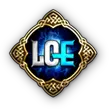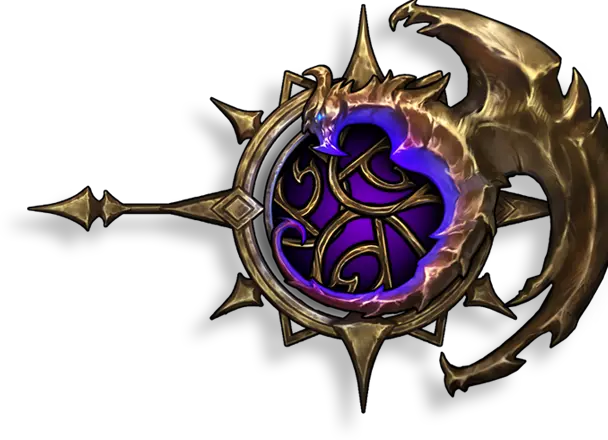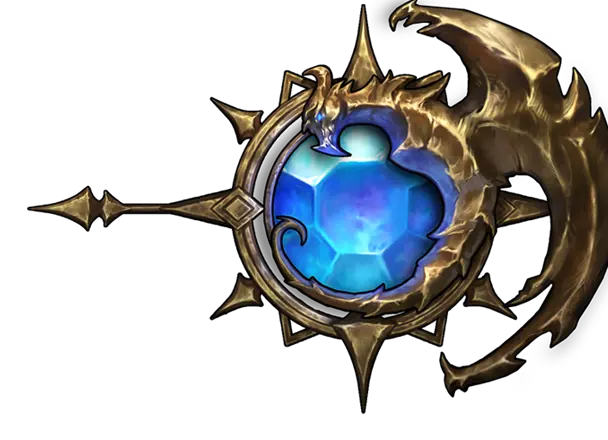Unleash Your Inner Champion: Conquer the World of Fantasy Card Games
Exploring Fantasy Card Games
Fantasy card games offer a unique blend of strategy, creativity, and competition. Let’s delve into the intricacies of one of the most popular fantasy card games and explore the fundamentals of designing your own game.
Magic: The Gathering Overview
Magic: The Gathering (MTG) is a collectible card game that encompasses both strategy and fantasy elements. Players build decks using a combination of cards, each possessing unique abilities. The game involves combat, casting spells, and outsmarting opponents. MTG promotes strategic thinking, creativity, and adaptability (Medium).
Key elements of Magic: The Gathering include:
- Deck Building: Players create decks with a minimum of 60 cards. These decks can contain various types of cards, such as creatures, spells, and lands.
- Mana System: Lands generate mana, which is used to cast spells and summon creatures.
- Combat Phase: Players attack their opponents with creatures, aiming to reduce their life points from 20 to zero.
- Card Types: Cards are categorized into different types, including creatures, instants, sorceries, enchantments, artifacts, and planeswalkers.
| Aspect | Details |
|---|---|
| Deck Size | Minimum 60 cards |
| Life Points | Each player starts with 20 life points |
| Mana Sources | Lands generate mana used to cast spells |
| Card Types | Creatures, instants, sorceries, enchantments, artifacts, planeswalkers |
| Objective | Reduce opponent’s life points to zero |
Designing a Fantasy Card Game
Designing a fantasy card game requires careful consideration of various elements to create an engaging and balanced experience. Here’s a step-by-step guide to help you get started:
- Theme Selection: Choose a theme that resonates with your target audience. A fantasy theme should appeal mostly to RPG fans, while a sci-fi theme should cater to fans of franchises like Star Wars (QinPrinting).
- Game Mechanics: Define the core mechanics of your game, such as how players draw cards, play cards, and win the game. Consider unique mechanics that set your game apart from others.
- Card Types and Abilities: Create different types of cards with distinct abilities. Balance is key to ensuring no single card or strategy dominates the game.
- Resource Management: Determine how players will manage resources, such as mana or energy, to play cards and activate abilities.
- Playtesting: Conduct extensive playtesting to identify and address any balance issues or gameplay flaws. Gather feedback from a diverse group of players.
- Artwork and Design: Invest in high-quality artwork and graphic design to make your cards visually appealing and enhance the thematic experience.
- Rulebook: Write a clear and concise rulebook that explains the game mechanics, card interactions, and victory conditions.
| Design Element | Description |
|---|---|
| Theme | Choose a theme that appeals to your target audience (e.g., fantasy, sci-fi) |
| Game Mechanics | Define core mechanics, such as card drawing, playing, and winning |
| Card Types | Create various card types with unique abilities |
| Resource Management | Determine how players will manage resources to play cards and activate abilities |
| Playtesting | Conduct playtesting to identify balance issues and gameplay flaws |
| Artwork and Design | Invest in high-quality artwork and graphic design for visual appeal |
| Rulebook | Write a clear and concise rulebook with explanations of mechanics and interactions |
By following these steps, you can create a captivating and balanced fantasy card game that appeals to strategic, creative, and competitive players.
Popular Fantasy Card Games
Fantasy card games offer an immersive experience for strategic, creative, and competitive players. Here, we explore three popular fantasy card games that have captivated the hearts of many.
Final Fantasy Trading Card Game
The Final Fantasy Trading Card Game (FFTCG) is based on the beloved Final Fantasy series. Initially exclusive to Japan, it experienced a global reboot in 2016. This game combines elements from various Final Fantasy titles, allowing players to build decks featuring their favorite characters and spells.
Key Features:
- Deck Building: Players create decks using characters, summons, and backups.
- Game Mechanics: The game incorporates unique mechanics such as “Damage” and “Crystal Points,” adding layers of strategy.
- Artwork: FFTCG showcases stunning illustrations from the Final Fantasy universe.
Shadowverse: Evolve
Shadowverse: Evolve is a paper adaptation of the popular digital card game Shadowverse. Released on July 30th, 2023, it introduces the “evolve” mechanic, adding a new twist to gameplay.
Key Features:
- Evolve Mechanic: Cards can evolve during the game, enhancing their abilities and stats.
- Strategic Depth: The game offers a variety of card types including followers, spells, and amulets.
- Art Style: Shadowverse: Evolve features beautiful, anime-inspired artwork that enhances the gaming experience.
Grand Archive TCG
Grand Archive is a new addition to the fantasy card game genre, launched in April 2023. Known for its anime-inspired artwork and Western card game mechanics, it has quickly gained popularity among fantasy card game enthusiasts.
Key Features:
- Anime Art Style: The game features vibrant and detailed anime-inspired illustrations.
- Western Mechanics: Grand Archive incorporates familiar card game mechanics, making it accessible to a broader audience.
- Customization: Players can create and customize their decks with a wide range of characters and spells.
| Game | Release Date | Unique Feature | Art Style |
|---|---|---|---|
| Final Fantasy Trading Card Game | 2016 (Global Reboot) | Damage and Crystal Points | Final Fantasy Universe |
| Shadowverse: Evolve | July 30, 2023 | Evolve Mechanic | Anime-Inspired |
| Grand Archive TCG | April 2023 | Western Card Game Mechanics | Anime-Inspired |
These popular fantasy card games offer diverse and engaging experiences for players. Whether you prefer the rich lore of Final Fantasy, the evolving gameplay of Shadowverse, or the anime aesthetics of Grand Archive, there’s a game to suit every fantasy card game enthusiast.
Emerging Fantasy Card Games
In the ever-evolving world of fantasy card games, several new titles have captured the attention of strategic, creative, and competitive players. Let’s explore some of these emerging games: Lorcana, Flesh and Blood, and Chaotic Revival.
Lorcana
Lorcana has quickly become a frontrunner in the fantasy card game arena. Released last year, this game has gained immense popularity among players for its engaging gameplay and rich lore (Draftsim). Lorcana combines strategic deck-building with visually stunning cards, making it a must-try for any enthusiast.
| Game | Release Year | Popularity Rating |
|---|---|---|
| Lorcana | 2022 | 9/10 |
Flesh and Blood
Flesh and Blood, launched in late 2019, has been hailed as a potential “Magic killer.” This game offers a unique combat system where players assume the roles of powerful heroes, each with their own distinct abilities and strategies. The game’s tactical depth and intricate mechanics have made it a favorite among competitive players.
| Game | Release Year | Popularity Rating |
|---|---|---|
| Flesh and Blood | 2019 | 8.5/10 |
Chaotic Revival
Originally released on October 24th, 2007, Chaotic was based on the cartoon series “Chaotic,” set in the magical world of Perim. Players could scan beings to use them as cards for battles, adding an element of adventure to the game. Although it is currently considered “dead,” Chaotic remains popular among a loyal community of fans who appreciate its unique gameplay and nostalgic value (CBR).
| Game | Release Year | Popularity Rating |
|---|---|---|
| Chaotic Revival | 2007 | 7/10 |
These emerging fantasy card games offer a variety of experiences for players who enjoy strategic planning, creative deck-building, and competitive play. Each game brings something unique to the table, ensuring that there’s always something new and exciting to explore in the world of fantasy card games.
Game Balance in Card Games
In the realm of fantasy card games, maintaining game balance is essential to ensure a fair and engaging experience for all players. Let’s delve into the importance of game balance and the strategies for achieving it.
Importance of Game Balance
Game balance is the ongoing process of adjusting the composition of game mechanics, rewards, challenges, tuning, timing, and telegraphing to create a fair and meaningful gameplay experience with the right amount of difficulty (Game Design Skills). Achieving a balanced game is crucial for player retention and overall enjoyment.
- Fairness and Challenge: A balanced game ensures that players face appropriate challenges that are neither too easy nor impossibly hard. This keeps players engaged and motivated to improve their skills.
- Player Retention: An unbalanced game can lead to player frustration. A game that is too difficult may cause players to quit, while a game that is too easy can bore players, resulting in fewer people talking about the game and a potential loss of sales (Game Design Skills).
- Variety and Meta Shifts: Balanced games offer a varied texture of situations where players experience both advantages and disadvantages over time. This dynamic nature prevents the game from becoming stale and encourages continual play (Game Design Skills).
Strategies for Balancing Games
Balancing a fantasy card game requires careful consideration and a multifaceted approach. Here are some strategies to achieve game balance:
- Resource Management: Balancing resources is crucial, as resource limitations restrict how, when, and how frequently certain threats can be used. Establishing these limitations first helps in tuning other aspects of the game.
| Resource Type | Limitation Strategy | Impact |
|---|---|---|
| Mana/Energy | Cap maximum points | Controls power spikes |
| Cards in Hand | Limit hand size | Prevents overwhelming advantage |
| Draw Rate | Adjust draw frequency | Balances card access |
Meta Disruption: Introducing new elements or adjusting existing ones can break up periods known as meta, where only certain game features are considered competitive. This disruption broadens the number of viable options and keeps the game fresh (Game Design Skills).
Avoiding the 50% Trap: Pursuing a “perfect feeling match” where every option competes evenly with every other option can lead to an unbalanced game. Players enjoy a variety of situations with fluctuating advantages and disadvantages.
Iterative Testing and Feedback: Continuous playtesting and gathering player feedback are vital. This iterative process helps identify imbalances and fine-tune the game mechanics accordingly.
By employing these strategies, we can create a balanced and enjoyable fantasy card game that keeps players engaged and coming back for more.
Living Card Games (LCGs)
Understanding Living Card Games
Living Card Games (LCGs) were first created by Fantasy Flight Games as an alternative to traditional trading card games. Unlike traditional games that thrive on the rarity of specific cards, LCGs expand via fixed sets. This means every box comes with the exact same cards, appealing to those who prefer less rarity and more emphasis on the gameplay (Dragon Shield).
LCGs adopt a monthly release model, introducing new mini-expansion packs known as “Cycle Packs.” Each Cycle Pack contains three copies of twenty brand new cards, totaling sixty cards per pack. These packs typically cost around $15.00.
| Release Type | Frequency | Number of Cards | Cost |
|---|---|---|---|
| Cycle Pack | Monthly | 60 | $15.00 |
| Deluxe Expansion | Every six months | Numerous | $40.00 |
LCGs also feature Deluxe Expansions released every six months. These expansions introduce new mechanics, numerous cards, and new formats to explore. The fixed nature of these expansions eliminates the need to chase down specific cards, and they usually cost around $40.00 (Dragon Shield).
Fantasy Flight Games’ LCGs
Fantasy Flight Games, the creator of Living Card Games, is a Minnesota-based company renowned for publishing a wide array of licensed and original products. Some notable titles include Star Wars: Imperial Assault, Star Wars: Destiny, Android: Netrunner, A Game of Thrones, and The Lord of the Rings.
The cards in LCGs typically do not hold value on the secondary market, as the supply always meets the demand. While promotional, alternate art, and foil cards exist, they are not more powerful than their non-promotional counterparts. This means players can fully enjoy the game without feeling the need to prioritize getting the promo versions unless they are interested in collecting rare items (Dragon Shield).
Fantasy Flight Games’ approach with LCGs provides a balanced and inclusive environment for players. By offering fixed expansions and a steady release schedule, they ensure that all players have equal access to the game’s content, fostering a more strategic and balanced playing field.
Mechanics of Living Card Games
Living Card Games (LCGs) have revolutionized the way we experience fantasy card games by offering a structured and predictable release model. Let’s dive into the mechanics of LCGs, focusing on Monthly Cycle Packs and Deluxe Expansions.
Monthly Cycle Packs
Monthly Cycle Packs are the heartbeat of the LCG experience. Released every month, these mini-expansion packs keep the game fresh and exciting. Each Cycle Pack contains three copies of twenty brand new cards, totaling sixty cards in each pack. This consistent influx of new cards allows players to continually evolve their strategies and decks without the unpredictability of random booster packs.
| Feature | Details |
|---|---|
| Release Frequency | Monthly |
| Number of Cards | 60 (three copies each of 20 cards) |
| Cost | $15.00 (Dragon Shield) |
Monthly Cycle Packs ensure that we always have something new to look forward to, keeping the meta dynamic and engaging.
Deluxe Expansions in LCGs
Deluxe Expansions are the cornerstone of major updates in LCGs. Released every six months, these expansions introduce new mechanics, numerous cards, and fresh formats to try out. Unlike traditional collectible card games, the cards in Deluxe Expansions are fixed, meaning there’s no need to chase down specific cards. This model guarantees that everyone has access to the same cards, promoting a fair and balanced playing field.
| Feature | Details |
|---|---|
| Release Frequency | Every six months |
| New Additions | New mechanics, numerous cards, new formats |
| Cost | $40.00 (Dragon Shield) |
Deluxe Expansions provide significant updates and keep the game evolving, ensuring that our experience remains innovative and challenging.
By understanding the mechanics of Monthly Cycle Packs and Deluxe Expansions, we can better appreciate the structured and engaging nature of Living Card Games. This predictable release model not only keeps the game fresh but also ensures that everyone can enjoy a balanced and fair fantasy card game experience.
Dive into Legends of Elysium (LOE), a FREE-to-play strategy game that combines the excitement of collectible cards with the depth of board games. Conquer a vibrant fantasy world with unique races, customizable heroes, and endless strategic choices.
Created by DA Games, LOE provides:
- Eye-catching visuals that bring Elysium to life ✨
- Competitive multiplayer leagues to challenge your abilities ⚔️
- Intense battlefield challenges and eSports tournaments
- Play-and-earn mechanics to profit from your passion
Join the legendary ranks today!
[CTA_BUTTON_PLAY]







